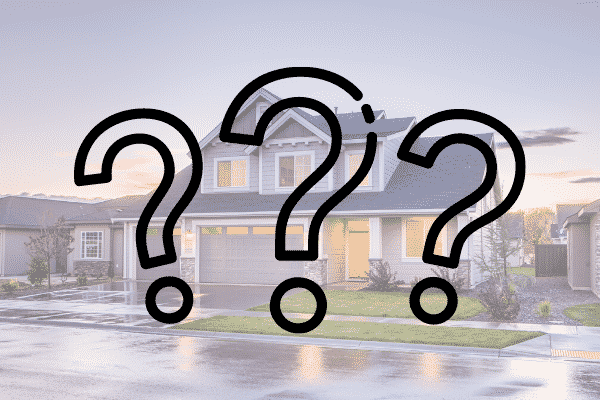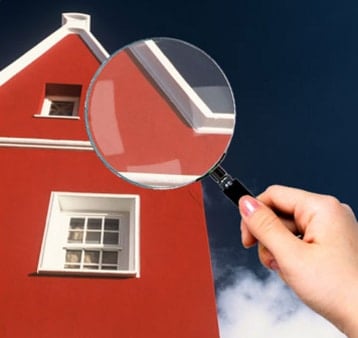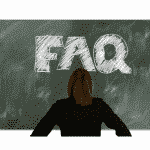Many first-time homebuyers are unfamiliar with the processes that take them from house-hunting to moving day. Who’s involved? And what happens when? In fact, we see that even buyers who have been through the real estate process several times before often need a refresher on how everything works, particularly if they haven’t moved in quite a while.
And frankly, it is kind of complicated. There are multiple parties involved — the buyer, seller, lending company, real estate agents, underwriter, home inspector, repair people, appraiser, title agent, and closing agent, among others. Each person has their own unique responsibilities and deliverables. They all want the process to move quickly but smoothly. And they have to work together to facilitate every real estate deal.
As certified, experienced home inspectors, we talk to a lot of people who are knee-deep in the home buying process and struggling to stay on top of everything that’s required. And we’re happy to educate them about how we participate in the process — because we’re passionate about what we do every day!
So, What Does a Home Inspector Do?
The short answer in Texas is this:
According to the consumer information on the Texas Real Estate Commission’s (TREC’s) web site, “Real estate inspectors are individuals licensed by TREC to perform inspections of real property that is part of a real estate transaction. Inspectors provide information on the performance of certain systems that are part of the property. They are required to use the TREC standard report form and are guided by their ‘Standards of Practice’ to ensure consistency throughout the home inspection process.”
Wow, that doesn’t tell you much, does it?
So, let’s dive in a little deeper…
What Does a Home Inspector Do, According to a Certified, Experienced Home Inspector?
A lot! We wear many hats, work with many people, and have to stay up-to-date on rules, regulations, and standards of practice. Here’s how we describe what we do — starting from the very beginning.
Before Becoming an Inspector
Becoming a real estate inspector requires education, experience, and licensing. TREC describes the three types of inspectors they license:
- Apprentice Inspectors, who have an entry-level license: They’re required to train under the direct supervision of a Professional Real Estate Inspector until they pass an exam to move to the next level.
- Real Estate Inspectors, who have an intermediate-level license. They have met the requirements of being an Apprentice Inspector and passed an exam, but they still have to work under a Professional Real Estate Inspector’s supervision.
- Professional Inspectors, who have the highest-level license. They have met the requirements of being a Real Estate Inspector and passed an exam. They can inspect properties independently, without anyone’s sponsorship or supervision.
Every Professional Inspector (which is the type of inspector you want when you’re making this significant investment) has been through each stage of licensing, acquiring education about a home’s numerous components, like foundations, roofing, HVAC systems, plumbing, and electrical systems. We’ve been on the ground, inspecting many types of properties, so we know what we’re looking for and how defects can be addressed.
We also take continuing education courses to stay current with what is changing in our industry. Are there new tools we can take advantage of to gain a better sense of a home’s condition? Are there new building materials or systems we need to understand to be able to perform a reliable inspection? We have to stay on top of it all!
Before Every Inspection
A top-notch home inspector does more than just show up on the day of the inspection. We talk with buyers, sellers, and real estate agents to help them understand how our process works and what we need from them to do the best job we can on the day of inspection.
We make sure everyone understands the importance of pre-inspection preparation. We confirm the date and time of the inspection with all parties involved, particularly if buyers plan to be on-site for the inspection. And we emphasize the importance of making sure that all areas that need to be inspected are unlocked and accessible — keys and codes are made available and the way is clear for us to inspect equipment, outside walls, and roofs.
We are partners on your home buying journey! And we want to make sure we are able to perform the best inspection possible, so you make a wise investment with peace of mind.
During Every Inspection
Here are TREC’s requirements for the inspection: Your home inspector is required to visually inspect accessible systems and components inside and outside the home, including the attic and crawl spaces. He has to operate equipment and appliances on normal settings and inspect the home’s structural, electrical, HVAC, and plumbing systems. He must climb the roof (unless it is physically unsafe), open and close doors and windows, and keep a general eye out for signs that may indicate hidden defects.
You can learn more about the details of TREC’s requirements in our post Home Inspection 101: What to Expect When You’re Inspecting. But you should know that the best home inspectors go above and beyond the minimum TREC requirements. We inspect additional components, like fences, pools, spas, and outbuildings. We take notes, pictures, and videos. We offer the use of special equipment, like a zip level instrument that measures foundation levels and a thermal imaging camera that can detect hidden issues, like water damage, hot electrical components, or mold. And we’ll report cosmetic damage caused by normal wear and tear. None of these activities are required by TREC, but we want you to have all the information you can to address defects with confidence and negotiate a fair deal.
A COVID-19 Note:
We recently wrote about how COVID-19 has changed the duration of most home inspections. It has also changed our recommendation about buyers attending the inspection (they shouldn’t until the pandemic is under control) and how buyers can get everything they need after the inspection (high-quality reporting with pictures and videos is crucial, as is easy access to your inspector). We hope you’ll read this post to understand more about how COVID-19 has changed home inspections.
After Every Inspection
Here’s what happens after an inspection if you’re working with a top-notch home inspector. We take time to visit with you soon after the inspection to provide an overview of our major findings in terms you will understand. Within three days, TREC requires us to deliver your report — but we do our best to deliver it the same day, or at least within 24 hours.
And about the report: TREC requires us only to indicate whether items were inspected, not inspected, not present, or deficient. We don’t have to provide much detail, and we’re not required to include photos. The best home inspectors do much more than that! We give you dozens of visuals (both pictures and videos) to help you really understand what we’ve seen. We provide a lot of detail as well as information about how certain defects can be addressed.
We will also be available to answer your questions and provide additional advice after you’ve had time to digest the report. Because our goal is for you to be completely satisfied that you’ve made the best decision when purchasing your new home.
We hope this is helpful information, no matter what role you play in the home buying process. As always, call us to learn more about how our home inspections can pave the way for your success.
About Our Licensed Dallas Home Inspections
Keith Boggs is the owner of Stonebriar Property Inspections. He is your personal home inspector, and his investment in the company will be reflected in the quality of your inspection. Mr. Boggs’ inspection reports are professional, comprehensive, detailed, and clear. They average about 60 pages, include 100 to 200 color images, and include detailed findings, recommendations, tips, and best practices for maintaining your home. Buyers also receive a full video debrief explaining all findings. Stonebriar Property Inspection’s customer reviews speak to Keith’s reputation as an ethical, reliable, and courteous Dallas home inspector. Stonebriar Property Inspections is fully licensed by the Texas Real Estate Commission for home inspections and the Texas Department of Agriculture for termite/wood destroying insect inspections.





